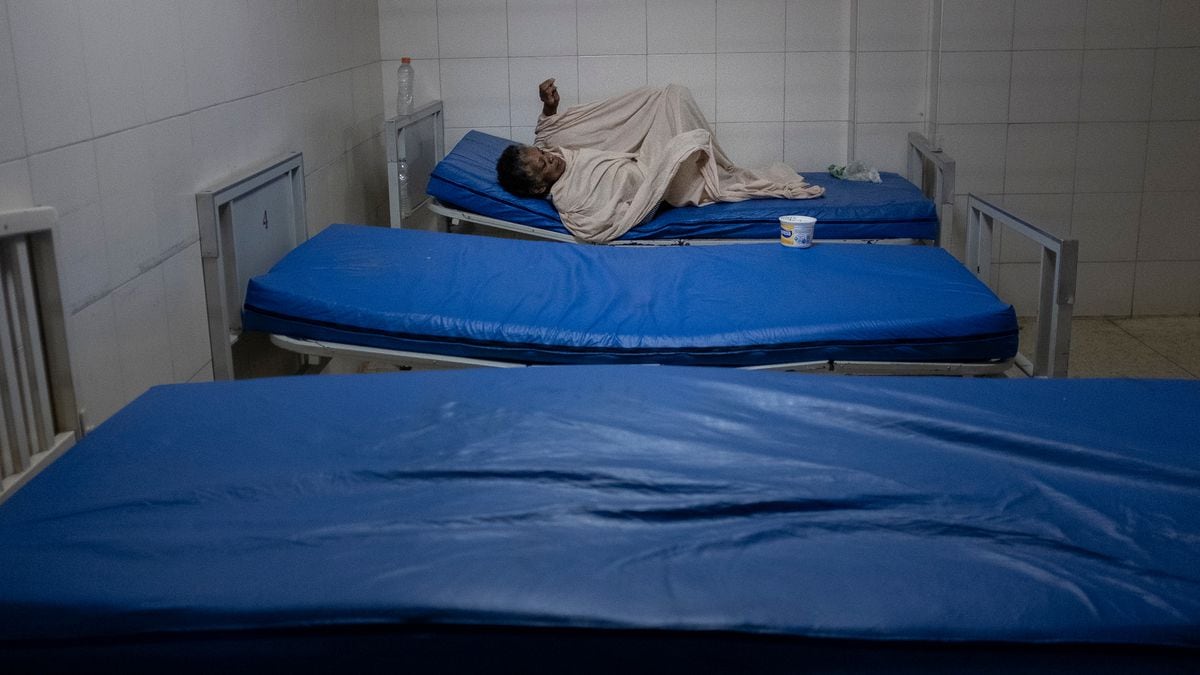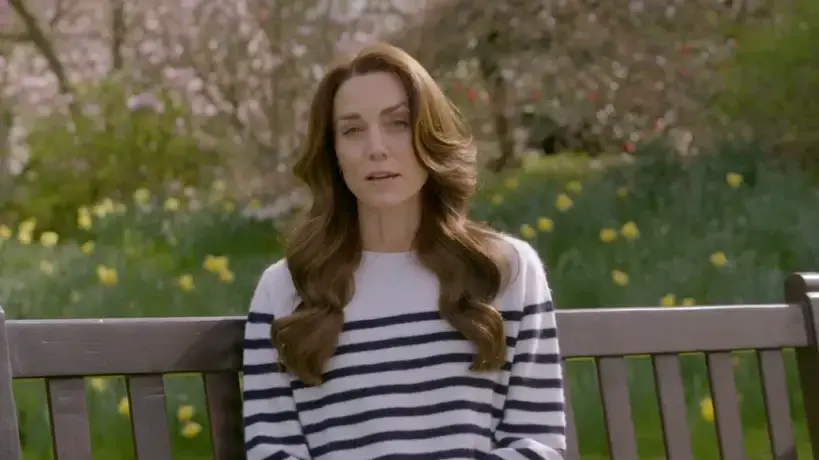Psychiatric hospitals in Israel have resumed re-tying mental patients at increasing rates over the past two years. In some cases, this is done in contravention of the provisions of the law, Ministry of Health guidelines and medical ethics, as well as the welcome trend that began in 2017 and was characterized by a sharp decline of 70 per cent in patient attachments, after an extraordinary media and public battle against the abusive practice.
Internal data from the Ministry of Health's Mental Health Division for the years 2022-2015, published here for the first time, reveal that from 2020 onwards, there has been a slow but consistent and continuous upward trend in patient binding in most psychiatric hospitals. According to the data, since 2020 there has been a 40%-30% increase in tying instructions in most psychiatric hospitals, and in some cases also in the duration of tying.
Ministry of Health building, photo: Oren Ben Hakon
An estimated 1,500 patients are tied up annually in psychiatric hospitals – about a quarter of all involuntary hospitalizations in closed wards – compared with around 4,000 patients linked annually until 2017.
Senior officials at these hospitals told Israel Hayom that they are very concerned about the intensification of this trend, "if the failed and very partial supervision by the Health Ministry and hospital administrations in this area continues, and public and media attention to this issue wanes."
According to data from the Mental Health Division, the trend of returning to bondage is particularly pronounced in four departments at Shaar Menashe Hospital in the Hadera area, in the psychiatric wards at Herzog Hospital in Jerusalem, as well as at Shalvata Hospital in Hod Hasharon, Lev Hasharon Hospital in Pardesiya and Ma'ale HaCarmel Hospital in Tirat Carmel.
On the other hand, the data show impressive successes in reducing bondage to a minimum in the psychiatric hospitals in Be'er Sheva and Mazor in Acre, and in the psychiatric wards of Sheba Hospital in Tel Hashomer.
Trend reversal
Already in July 2022, Dr. Tal Bergman, then head of the Ministry of Health's Mental Health Division, warned of a "relative upward trend that should be followed" in tying patients. At the same time, Israel Hayom has learned that the ministry has begun receiving complaints from patients and family members alleging that patients were being tied up illegally and cruelly, in complete contravention of the provisions of the law and the explicit instructions of the ministry's director-general.
According to Dr. Adit Sargosti, head of policy implementation at "Bizchut", the Center for Human Rights of People with Disabilities, "The data revealed following our petition indicate severe phenomena, including an increase in the rate of binding since 2018, the use of restrictive measures on a disturbing scale even for youth, and the Ministry of Health's failure to fulfill its obligations, collect data, and monitor the binding and isolation of mental patients.
Dr. Edith Sargosti, "Bizchut" Center, Photo: Oren Ben Hakon
"We are deeply troubled by the upward trend in attachments in hospitals and psychiatric wards. Tying blatantly and clearly violates the most basic human rights, from the right to bodily integrity to the right to dignity, autonomy and privacy. One would expect that the reduction in the use of this unacceptable measure, which was evident in the system until 2018, would continue to the point of tying in very rare cases and even disappear from its use, as recommended by the committee, but instead there has been a worrying increase in the rate of binding in recent years."
Bondage and isolation: the struggle
Patients in psychiatric hospitals have been tied up for decades using special leather and iron straps, usually on the four limbs, with patients isolated in designated tethering rooms, closed and sealed, unable to get out of them.
In Israel, tying is permitted by law and Ministry of Health directives under strict restrictions, but a series of studies and testimonies by doctors and patients have revealed that beyond the mental illness for which the patient was hospitalized, tying and isolation in themselves cause him severe and irreversible mental and physical injury and trauma.
The renewed increase in patient binding stands out against the background of the very sharp decline that began in 2017, following resounding revelations – by the above signatory in Israel Hayom, and in the program "Agenda" with Keren Neubach in Reshet Bet at the Kan Broadcasting Corporation – about horrific complaints from patients who were cruelly and wholesale tied up in hospitals in Israel.
Following these exposures and an unprecedented public struggle, Moshe Bar Siman Tov, then (and today) Director General of the Ministry of Health, ruled in 2018 that tying or isolating is an "extreme measure" and ordered that they be used only "in the most exceptional cases, to the extent necessary, and only to prevent immediate real physical danger to the patient or others."
Moshe Bar Siman Tov, Director General of the Ministry of Health, Photo: Oren Ben Hakon
In addition, and contrary to hospital practice until 2016, Ministry of Health directives prohibited tying or isolating a patient as a means of punishment, discipline enforcement, behavior modification, deterrence of verbal violence, refusal to follow orders, taking medication or agreeing to hospitalization, or due to a shortage of personnel in psychiatric wards.
"Severe trauma"
However, a series of new complaints submitted to the Ministry of Health this year reveals that in some hospitals there are repeated allegations of tying that contravenes regulations and is done in a cruel and very abusive manner. Thus, for example, according to the complaint of Moshe, a resident of the north, which was forwarded in February of this year to Prof. Michael Poirovsky, department director at Ma'ale HaCarmel, by attorney Sharon Primor, who is considered a leader in the public struggle against bonding.
According to the complaint, Moshe was tied up three times without any justification enshrined in Health Ministry directives. Moreover, the third tie was done in the presence of his father because Moshe spoke insolently and aggressively because of his anger at being forcibly hospitalized – even though he came to the hospital voluntarily and even before the psychiatric committee heard about the continuation of the involuntary hospitalization.
"All the ties were done in grave violation of the law, he felt humiliated and his frustration increased," Primor wrote in her complaint. "Indeed, according to medical studies, the very fact of tying for reasons of emotional injury worsens the mental state and has no therapeutic value. The tying shortly before the committee's deliberations constitutes a serious violation of the right to due process, and was not only illegal but also disproportionate and unnecessary, and it is clear that the tying itself had a direct impact on the committee's impression."
Yesterday, Moshe told Israel Hayom that during my hospitalizations at Ma'ale HaCarmel and Sha'ar Menashe, "I was tied up for several hours and it left me severely traumatized. On one occasion I was dragged to the bonding room and it was clear to me that it was always as punishment. At Sha'ar Menashe they also put me in the isolation room, and it was very difficult."
Adv. Primor told Israel Hayom that "contrary to accepted slogans, there is no need or necessity for tying up patients. This conduct stems directly from the treatment-ethical norms and values of the hospital managements, which also affect the treatment of patients and the climate in the wards."
Ma'ale HaCarmel Hospital said: "Physical restriction in psychiatric wards is a last resort aimed at preventing violence by a patient against others. In recent years, this technique has been used sparingly and highly regulated."
The Ministry of Health is investigating
These days, Israel Hayom has learned, the Ministry of Health is examining a complaint about the death of Amos Epstein last April 15, while he was in isolation at Shaar Menashe Hospital – just four days after he was rehospitalized, and about two weeks after he was released from a few months of hospitalization at the same hospital.
The complainants – Amos' brother Nir, and his mother Vivian – demand an investigation into what caused him to suddenly be found unconscious and without a pulse, what supervision he had during the isolation, and why the lung infection and respiratory distress that led to his tragic death after he was rushed to Hillel Yaffe Hospital in the room were not treated
"They will be held accountable." Vivian Epstein, Photo: Yossi Zeliger
"Amos was 14 years old when our father died," his brother Yoni said in his eulogy at the funeral, "and began to develop symptoms of psychological trauma, which developed into a serious mental illness in his adult life. When my mother asked what happened to him in his last hours, the head of the department said to her only: 'Madam, your son didn't die at Sha'ar Menashe, he died in Hillel Yaffe, so what do you want from us?' This was 'exemplary sensitive' behavior on the part of a senior doctor at the hospital. We will hold anyone who caused Amos' untimely death to account, and they will be held accountable."
Amos z"l, Photo: Yossi Zeliger
The Shaar Menashe Mental Health Center said in a statement: "The circumstances of the death of the late patient Amos Epstein are under investigation by the Israel Police. Under these circumstances, no investigation or investigation has been carried out."
"Reduction in restrictions"
The Ministry of Health said in response that it is "working to reduce to a minimum the restrictions and isolation in psychiatric hospitals, as evidenced by the ministry's data indicating a decline in the number of such restrictions compared to previous years. Any restriction beyond 24 hours is reported to the District Psychiatrist and the Ministry of Health's Mental Health Division, and individual controls are carried out accordingly.
"The ministry has led many actions to reduce the phenomenon – hospital teams were sent for training on preventing restrictions, courses were held to treat populations that need focused attention in order to prevent mechanical restrictions and isolation, and more."
Wrong? We'll fix it! If you find a mistake in the article, please share with us















